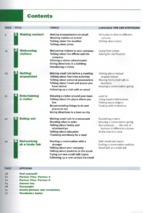DICTIONARY OF
BUSINESS
FOURTH EDITION
Specialist dictionaries:
Dictionary of Accounting
0 7475 6991 6
Dictionary of Banking and Finance
0 7136 7739 2
Dictionary of Computing
0 7475 6622 4
Dictionary of Economics
0 7475 6632 1
Dictionary of Environment and Ecology
0 7475 7201 1
Dictionary of Human Resources and Personnel Management
0 7475 6623 2
Dictionary of ICT
0 7475 6990 8
Dictionary of Law
0 7475 6636 4
Dictionary of Leisure, Travel and Tourism
0 7475 7222 4
Dictionary of Marketing
0 7475 6621 6
Dictionary of Medical Terms
0 7136 7603 5
Dictionary of Nursing
0 7475 6634 8
Dictionary of Science and Technology
0 7475 6620 8
Easier English™ titles:
Easier English Basic Dictionary
0 7475 6644 5
Easier English Basic Synonyms
0 7475 6979 7
Easier English Dictionary: Handy Pocket Edition
0 7475 6625 9
Easier English Intermediate Dictionary
0 7475 6989 4
Easier English Student Dictionary
0 7475 6624 0
Check Your English Vocabulary workbooks:
Banking and Finance
0 9485 4996 3
Business
0 7475 6626 7
Computing
1 9016 5928 3
Law
0 7136 7592 6
Marketing
0 9016 5948 8
IELTS
0 7475 5982 7
FCE +
0 7475 6981 9
TOEFL®
0 7475 6984 3
TOEIC
®
0 7136 7592 6
Visit our website for full details of all our books
www.acblack.com
DICTIONARY OF
BUSINESS
FOURTH EDITION
P.H. Collin
A & C Black 폷 London
www.acblack.com
Originally published by Peter Collin Publishing
First published 1985
as English Business Dictionary
Second edition published 1994
reprinted 1995, 1997, 1999
Third edition published 2001
reprinted twice 2001
Fourth edition published 2004
reprinted 2006
A & C Black Publishers Ltd
38 Soho Square, London W1D 3HB
Copyright © P.H. Collin, F. Collin & S.M.H. Collin 1985, 1994, 2001
© Bloomsbury Publishing Plc 2004
© A & C Black Publishers Ltd 2006
All rights reserved. No part of this publication may
be reproduced in any form or by any means without the
prior written permission of the publishers.
A CIP record for this book is available from the British Library
eISBN-13: 978-1-4081-0224-4
Text production and proofreading
Katy McAdam, Joel Adams, Sarah Lusznat, Emma Harris
A & C Black uses paper produced with elemental chlorine-free pulp,
harvested from managed sustainable forests.
Text processing and computer typesetting by A & C Black
Printed and bound in Italy by Legoprint
Preface
This dictionary provides the user with the basic vocabulary used in business
in both British and American English. The dictionary contains words and
phrases which cover all aspects of business life from the office to the Stock
Exchange and international trade fairs.
It is designed for anyone who needs to check the meaning or pronunciation of
a business term, but especially for those for whom English is an additional
language. Each entry is explained in clear straightforward English and
examples are given to show how the words are used in normal contexts.
Because English is a world language of business, short quotations are
included from international newspapers.
Pronunciations, irregular plurals and verb forms, constructions used with
particular words, differences between American and British usage, and other
useful points are included. At the back of the book, the user will find
supplements giving useful information about numbers (how to speak and
write them), telephoning, and writing business letters, together with a list of
world currencies, weights and measures, and local times around the world.
Thanks are due to Steven Gregory for his helpful comments and advice on
this fourth edition of the dictionary.
Pronunciation
The following symbols have been used to show the pronunciation of the main
words in the dictionary.
Stress is indicated by a main stress mark ( � ) and a secondary stress mark ( � ) .
Note that these are only guides, as the stress of the word changes according to its
position in the sentence.
Vowels
�
ɑ�
ɒ
a
aυ
aə
aυə
ɔ�
ɔ
e
eə
e
eυ
��
i�
i
ə
ə
u
u�
υ
υə
'
Consonants
back
harm
stop
type
how
hire
hour
course
annoy
head
fair
make
go
word
keep
happy
about
fit
near
annual
pool
book
tour
shut
b
d
ð
d�
f
�
h
j
k
l
m
n
ŋ
p
r
s
ʃ
t
tʃ
θ
v
w
x
�
z
buck
dead
other
jump
fare
gold
head
yellow
cab
leave
mix
nil
sing
print
rest
save
shop
take
change
theft
value
work
loch
measure
zone
Business.fm Page 1 Thursday, April 8, 2004 3:51 PM
A
A /e/, AA, AAA noun letters that show
how reliable a particular share, bond or
company is considered to be 쑗 These
bonds have a AAA rating.
A
‘…the rating concern lowered its rating to
single-A from double-A, and its senior
debt rating to triple-B from single-A’
[Wall Street Journal]
COMMENT: The AAA rating is given by
Standard & Poor’s or by Moody’s, and indicates a very high level of reliability for
a corporate or municipal bond in the US.
A1 /�e �wɒn/ adjective 1. in very good
condition 쑗 We sell only goods in A1 condition. 2. 왍 ship which is A1 at Lloyd’s
a ship which is in the best possible condition according to Lloyd’s Register
abandon /ə�b�ndən/ verb 1. to give up
or not continue doing something 쑗 We
abandoned the idea of setting up a New
York office. 쑗 The development programme had to be abandoned when the
company ran out of cash. 왍 to abandon
an action to give up a court case 2. to
leave something 쑗 The crew abandoned
the sinking ship.
abandonment /ə�b�ndənmənt/ noun
an act of giving up voluntarily something
that you own, such as an option or the
right to a property 왍 abandonment of a
ship giving up a ship and cargo to the underwriters against payment for total loss
abatement /ə�betmənt/ noun an act
of reducing
abbreviated accounts /ə�bri�vietd
ə�kaυnts/ noun a shortened version of a
company’s annual accounts that a small
or medium sized company can file with
the Registrar of Companies, instead of a
full version
above par /ə�b�v �pɑ�/ adjective referring to a share with a market price higher
than its par value
A1
abandon
|
abandonment
|
abatement
|
abbreviated accounts
|
|
above par
|
above the line /ə�b�v ðə �lan/ adjective, adverb 1. used to describe entries in
above the line
|
a company’s profit and loss accounts that
appear above the line separating entries
showing the origin of the funds that have
contributed to the profit or loss from those
that relate to its distribution. Exceptional
and extraordinary items appear above the
line. 쑗 Exceptional items are noted above
the line in company accounts. 쒁 below
the line 2. relating to revenue items in a
government budget 3. relating to advertising for which payment is made (such as
an ad in a magazine or a stand at a trade
fair) and for which a commission is paid
to an advertising agency. Compare below
the line
above-the-line advertising /ə�b�v
above-the-line advertising
|
ðə lan ��dvətazŋ/ noun advertising
for which a payment is made and for
which a commission is paid to the advertising agency, e.g. an advertisement in a
magazine or a stand at a trade fair. Compare below-the-line advertising (NOTE:
as opposed to direct marketing)
abroad /ə�brɔ�d/ adverb to or in another
abroad
|
country 쑗 The consignment of cars was
shipped abroad last week. 쑗 The chairman is abroad on business. 쑗 He worked
abroad for ten years. 쑗 Half of our profit
comes from sales abroad.
absence /��bsəns/ noun the fact of not
being at work or at a meeting 왍 in the absence of when someone is not there 쑗 In
the absence of the chairman, his deputy
took the chair.
absent /��bsənt/ adjective not at work
or not at a meeting 쑗 He was absent owing to illness. 쑗 Ten of the workers are absent with flu. 쑗 The chairman is absent in
Holland on business.
absence
absent
Business.fm Page 2 Thursday, April 8, 2004 3:51 PM
absentee
2
absentee /��bsən�ti�/ noun a person
who is absent or an employee who stays
away from work for no good reason
absenteeism
/��bs(ə)n�ti�z(ə)m/
noun the practice of staying away from
work for no good reason 쑗 Low productivity is largely due to the high level of absenteeism. 쑗 Absenteeism is high in the
week before Christmas.
absentee
|
absenteeism
|
‘…but the reforms still hadn’t fundamentally changed conditions on the shop floor:
absenteeism was as high as 20% on some
days’ [Business Week]
absenteeism rate /��bsən�ti�z(ə)m
ret/ noun the percentage of the workabsenteeism rate
|
force which is away from work with no
good excuse 쑗 The rate of absenteeism or
the absenteeism rate always increases in
fine weather.
absolute /��bsəlu�t/ adjective complete or total
absorb /əb�zɔ�b/ verb to take in a small
item so that it forms part of a larger one 왍
to absorb overheads to include a proportion of overhead costs into a production
cost (this is done at a certain rate, called
the ‘absorption rate’) 왍 overheads have
absorbed all our profits all our profits
have gone in paying overhead expenses 왍
to absorb a loss by a subsidiary to include a subsidiary company’s loss in the
group accounts 왍 a business which has
been absorbed by a competitor a small
business which has been made part of a
larger one
absorption /əb�zɔ�pʃən/ noun the
process of making a smaller business part
of a larger one, so that the smaller company in effect no longer exists
absorption costing /əb�zɔ�pʃən
�kɒstŋ/ noun a form of costing for a
product that includes both the direct costs
of production and the indirect overhead
costs as well
absorption rate /əb�zɔ�pʃən �ret/
noun a rate at which overhead costs are
absorbed into each unit of production
abstract /��bstr�kt/ noun a short form
of a report or document 쑗 to make an abstract of the company accounts
abstract of title /�b�str�kt əv
�tat(ə)l/ noun a summary of the details
of the ownership of a property which has
not been registered
a/c, acc abbr account
absolute
absorb
|
absorption
|
absorption costing
|
absorption rate
|
abstract
abstract of title
|
a/c
ACAS /�ek�s/ abbr Advisory, Conciliation and Arbitration Service
accelerate /ək�seləret/ verb to make
something go faster
acceleration clause /ək�selə�reʃən
�klɔ�z/ noun US a clause in a contract
providing for immediate payment of the
total balance if there is a breach of contract
accept /ək�sept/ verb 1. to take something which is being offered 왍 to accept
delivery of a shipment to take goods into
the warehouse officially when they are
delivered 2. to say ‘yes’ or to agree to
something 쑗 She accepted the offer of a
job in Australia. 쑗 He accepted £2000 in
lieu of notice.
acceptable /ək�septəb(ə)l/ adjective
easily accepted 쑗 Both parties found the
offer acceptable. 쑗 The terms of the contract of employment are not acceptable to
the candidate.
acceptance /ək�septəns/ noun 1. the
act of signing a bill of exchange to show
that you agree to pay it 왍 to present a bill
for acceptance to present a bill for payment by the person who has accepted it 2.
왍 acceptance of an offer the act of agreeing to an offer 왍 to give an offer a conditional acceptance to accept an offer provided that specific things happen or that
specific terms apply 왍 we have their letter of acceptance we have received a letter from them accepting the offer
ACAS
accelerate
|
acceleration clause
|
|
accept
|
acceptable
|
acceptance
|
acceptance against documents
acceptance against documents
/ək�septəns ə!enst �dɒkjυmənts/ noun
|
a transaction where the seller takes charge
of the shipping documents for a consignment of goods when a buyer accepts a bill
of exchange 쑗 Acceptance against documents protects the seller when sending
goods which are not yet paid for.
acceptance bank /ək�septəns b�ŋk/
noun US same as accepting house
acceptance house /ək�septəns
haυs/ noun same as accepting house
acceptance sampling /ək�septəns
�sɑ�mplŋ/ noun the process of testing a
small sample of a batch to see if the whole
batch is good enough to be accepted
accepting house /ək�septŋ �haυs/
noun a firm, usually a merchant bank,
which accepts bills of exchange at a discount, in return for immediate payment to
acceptance bank
|
acceptance house
|
acceptance sampling
|
accepting house
|
Business.fm Page 3 Thursday, April 8, 2004 3:51 PM
3
the issuer, in this case the Bank of England
Accepting Houses Committee /ək
�septŋ �haυzz kə�mti/ noun the main
London merchant banks, which organise
the lending of money with the Bank of
England. They receive slightly better discount rates from the Bank.
access /��kses/ noun 왍 to have access
to something to be able to obtain or reach
something 쑗 She has access to large
amounts of venture capital. 쐽 verb to call
up data which is stored in a computer 쑗
She accessed the address file on the computer.
accession /ək�seʃ(ə)n/ noun the act of
joining an organisation
access time /��kses �tam/ noun the
time taken by a computer to find data
stored in it
accident /��ksd(ə)nt/ noun something unpleasant which can be caused by
carelessness or which happens by chance
such as a plane crash
accident insurance /��ksd(ə)nt n
�ʃυərəns/ noun insurance which will pay
the insured person when an accident takes
place
accident policy /��ksd(ə)nt �pɒlsi/
noun an insurance contract which provides a person with accident insurance
accommodation /ə�kɒmə�deʃ(ə)n/
noun 1. money lent for a short time 2. 왍
to reach an accommodation with creditors to agree terms for settlement with
creditors 3. a place to stay temporarily or
live in 쑗 Visitors have difficulty in finding
hotel accommodation during the summer.
Accepting Houses Committee
|
|
access
accession
|
access time
accident
accident insurance
|
accident policy
accommodation
|
|
‘…any non-resident private landlord can
let furnished or unfurnished accommodation to a tenant’ [Times]
‘…the airline providing roomy accommodations at below-average fares’ [Dun’s
Business Month]
accommodation address /ə�kɒmə
�deʃ(ə)n ə�dres/ noun an address used
accommodation address
|
|
|
for receiving messages, but which is not
the real address of the company
accommodation
bill
/ə�kɒmə
�deʃ(ə)n �bl/ noun a bill of exchange
where the person signing (the ‘drawee’) is
helping another company (the ‘drawer’)
to raise a loan
accompany /ə�k�mp(ə)ni/ verb to go
with 쑗 The chairman came to the meeting
accommodation bill
|
accompany
|
|
account
accompanied by the finance director. 쑗
They sent a formal letter of complaint, accompanied by an invoice for damage.
(NOTE: accompanied by something)
accordance /ə�kɔ�d(ə)ns/ noun 왍 in
accordance
|
accordance with in agreement or conformity with, as a result of what someone
has said should be done 쑗 In accordance
with your instructions we have deposited
the money in your current account. 쑗 I am
submitting the claim for damages in accordance with the advice of our legal advisers.
accordingly /ə�kɔ�dŋli/ adverb in
agreement with what has been decided 쑗
We have received your letter and have altered the contract accordingly.
according to /ə�kɔ�dŋ tu�/ preposition 1. in accordance with 쑗 The computer was installed according to the manufacturer’s instructions. 2. as stated or
shown by someone
accordingly
|
according to
|
‘…the budget targets for employment and
growth are within reach according to the
latest figures’ [Australian Financial Review]
account /ə�kaυnt/ noun 1. a record of
account
|
financial transactions over a period of
time, such as money paid, received, borrowed or owed 쑗 Please send me your account or a detailed or an itemised account. 2. (in a shop) an arrangement
which a customer has to buy goods and
pay for them at a later date, usually the
end of the month 쑗 to have an account or
a charge account or a credit account with
Harrods 쑗 Put it on my account or charge
it to my account. 쑗 They are one of our
largest accounts. 왍 to open an account
(of a customer) to ask a shop to supply
goods which you will pay for at a later
date 왍 to open an account, to close an
account (of a shop) to start or to stop supplying a customer on credit 왍 to settle an
account to pay all the money owed on an
account 왍 to stop an account to stop supplying a customer until payment has been
made for goods supplied 3. 왍 on account
as part of a total bill 왍 to pay money on
account to pay to settle part of a bill 왍 advance on account money paid as a part
payment 4. a customer who does a large
amount of business with a firm and has an
account with it 쑗 Smith Brothers is one of
our largest accounts. 쑗 Our sales people
call on their best accounts twice a month.
Business.fm Page 4 Thursday, April 8, 2004 3:51 PM
accountability
4
5. 왍 to keep the accounts to write each
sum of money in the account book 쑗 The
bookkeeper’s job is to enter all the money
received in the accounts. 왍 profit and
loss account (P&L account) statement
of company expenditure and income over
a period of time, almost always one calendar year, showing whether the company
has made a profit or loss (the balance
sheet shows the state of a company’s finances at a certain date; the profit and loss
account shows the movements which
have taken place since the last balance
sheet) 6. 왍 overdrawn account an account where you have taken out more
money than you have put in, i.e. the bank
is effectively lending you money 왍 to
open an account to start an account by
putting money in 쑗 She opened an account with the Bradford & Bingley Building Society. 왍 to close an account to take
all money out of a bank account and stop
the account 쑗 We closed our account with
Lloyds. 7. a period during which shares
are traded for credit, and at the end of
which the shares bought must be paid for
(NOTE: On the London Stock Exchange,
there are twenty-four accounts during
the year, each running usually for ten
working days.) 8. a notice 왍 to take ac-
count of inflation, to take inflation into
account to assume that there will be a
specific percentage of inflation when
making calculations 쐽 verb 왍 to account
for to explain and record a money transaction 쑗 to account for a loss or a discrepancy 쑗 The reps have to account for
all their expenses to the sales manager.
accountability /ə�kaυntə�blti/ noun
the fact of being responsible to someone
for something, e.g. the accountability of
directors to the shareholders
accountable /ə�kaυntəb(ə)l/ adjective referring to a person who has to explain what has taken place or who is responsible for something (NOTE: You are
accountability
|
|
accountable
|
accountable to someone for something.)
accountancy /ə�kaυntənsi/ noun the
accountancy
|
work of an accountant 쑗 They are studying accountancy or They are accountancy
students. (NOTE: The US term is ac-
counting in this meaning.)
account book /ə�kaυnt bυk/ noun a
account book
|
book with printed columns which is used
to record sales and purchases
account day / ə�kaυnt de/ noun a day
account day
|
on which shares which have been bought
must be paid for, usually a Monday ten
days after the end of an account. Also
called settlement day
account end /ə�kaυnt �end/ noun the
end of an accounting period
account executive /ə�kaυnt !
�zekjυtv/ noun an employee who looks
after customers or who is the link between
customers and the company
accounting /ə�kaυntŋ/ noun 1. the
work of recording money paid, received,
borrowed or owed 쑗 accounting methods
쑗 accounting procedures 쑗 an accounting machine 2. accountancy, the work of
an accountant as a course of study
account end
|
account executive
|
|
accounting
|
‘…applicants will be professionally qualified and have a degree in Commerce or
Accounting’
[Australian Financial Review]
accounting
period /ə�kaυntŋ
�pəriəd/ noun a period of time at the end
accounting period
|
of which the firm’s accounts are made up
accounts /ə�kaυnts/ noun detailed
records of a company’s financial affairs
accounts department /ə�kaυnts d
�pɑ�tmənt/ noun a department in a company which deals with money paid, received, borrowed or owed
accounts
manager
/ə�kaυnts
�m�nd$ə/ noun the manager of an accounts department
accounts
payable
/ə�kaυnts
�peəb(ə)l/ noun money owed by a company
accounts receivable /ə�kaυnts r
�si�vəb(ə)l/ noun money owed to a company. Abbreviation AR
accounts staff /ə�kaυntz stɑ�f/ noun
people who work in the accounts department
accreditation /ə�kred�teʃ(ə)n/ noun
the process of certifying the competence
of a person in a certain area
accredited /ə�kredtd/ adjective referring to an agent who is appointed by a
company to act on its behalf
accrual /ə�kru�əl/ noun 1. the act of
noting financial transactions when they
take place, and not when payment is made
2. a gradual increase by addition 왍 accrual of interest the automatic addition of interest to capital
accounts
|
accounts department
|
|
accounts manager
|
accounts payable
|
accounts receivable
|
accounts staff
|
accreditation
|
accredited
|
accrual
|
|
|
Business.fm Page 5 Thursday, April 8, 2004 3:51 PM
5
accrue /ə�kru�/ verb 1. to record a fiaccrue
|
nancial transaction in accounts when it
takes place, and not when payment is
made or received 2. to increase and be due
for payment at a later date 쑗 Interest accrues from the beginning of the month.
accrued dividend /ə�kru�d �dv
�dend/ noun a dividend earned since the
last dividend was paid
accrued interest /ə�kru�d �ntrəst/
noun interest which has been earned by
an interest-bearing investment 쑗 Accrued
interest is added quarterly.
accrued liabilities /ə�kru�d �laə
�bltiz/ noun liabilities which are recorded in an accounting period, although payment has not yet been made. This refers to
liabilities such as rent, electricity, etc.
acct abbr account
accumulate /ə�kju�mjυlet/ verb to
grow in quantity by being added to, or to
get more of something over a period of
time 쑗 We allow dividends to accumulate
in the fund.
accumulated
profit
/ə
�kju�mjυletd �prɒft/ noun a profit
which is not paid as dividend but is taken
over into the accounts of the following
year
accumulated
reserves
/ə
�kju�mjυletd r�z&�vz/ plural noun reserves which a company has put aside
over a period of years
accumulation
unit /ə�kju�mjυ
�leʃ(ə)n �ju�nt/ noun a type of unit in a
unit trust, which produces dividends
which are used to form more units (as opposed to an income unit, which produces
dividends which the investor receives as
income)
accurate /��kjυrət/ adjective correct
쑗 The sales department made an accurate
forecast of sales. 쑗 The designers produced an accurate copy of the plan.
accuse /ə�kju�z/ verb to say that someone has committed a crime 쑗 She was accused of stealing from the petty cash box.
쑗 He was accused of industrial espionage. (NOTE: You accuse someone of a
accrued dividend
|
|
accrued interest
|
accrued liabilities
|
|
acct
accumulate
|
accumulated profit
|
accumulated reserves
|
|
accumulation unit
|
|
accurate
accuse
|
crime or of doing something.)
achieve /ə�tʃi�v/ verb to succeed in doachieve
|
ing something, to do something successfully 쑗 He has achieved his long-term
training objectives. 쑗 The company has
acquisition rate
achieved great success in the Far East. 쑗
We achieved all our objectives in 2001.
‘…the company expects to move to profits
of FFr 2m next year and achieve equally
rapid growth in following years’
[Financial Times]
achievement /ə�tʃi�vmənt/ noun sucachievement
|
cess or something that has been achieved
achiever /ə�tʃi�və/ noun a person who
is successful or who tends to achieve his
or her objectives 쑗 It was her reputation
as a high achiever that made us think of
headhunting her. 쒁 VALS
acid test ratio /��sd �test �reʃəυ/
noun same as liquidity ratio
acknowledge /ək�nɒld$/ verb to tell a
sender that a letter, package or shipment
has arrived 쑗 He has still not acknowledged my letter of the 24th. 쑗 We acknowledge receipt of your letter of June
14th.
acknowledgement /ək�nɒld$mənt/
noun the act of acknowledging 쑗 She sent
an acknowledgement of receipt. 쑗 The
company sent a letter of acknowledgement after I sent in my job application.
acoustic hood /ə�ku�stk �hυd/ noun
a cover which is put over a printer to reduce the noise level
a/c payee /�e siə pe�i�/ words written
between the two lines on a crossed
cheque, to show that it can only be paid
into the account of the person whose
name is written on the cheque (all
cheques have this printed on them)
acquire /ə�kwaə/ verb to buy 쑗 to acquire a company 쑗 We have acquired a
new office building in the centre of town.
acquirer /ə�kwaərə/ noun a person or
company which buys something
acquisition /��kw�zʃ(ə)n/ noun 1.
something bought 쑗 The chocolate factory is our latest acquisition. 2. the takeover
of a company. The results and cash flows
of the acquired company are brought into
the group accounts only from the date of
acquisition: the figures for the previous
period for the reporting entity should not
be adjusted. The difference between the
fair value of the net identifiable assets acquired and the fair value of the purchase
consideration is goodwill. 3. the act of
getting or buying something
acquisition rate /��kw�zʃ(ə)n ret/
noun a figure that indicates how much
achiever
|
acid test ratio
acknowledge
|
acknowledgement
|
acoustic hood
|
a/c payee
|
acquire
|
acquirer
|
acquisition
|
acquisition rate
|
Business.fm Page 6 Thursday, April 8, 2004 3:51 PM
acre
6
new business is being won by a company’s marketing activities
acre /�ekə/ noun a measure of the area
of land (= 0.45 hectares) (NOTE: The pluacre
ral is used with figures, except before a
noun: he has bought a farm of 250
acres, he has bought a 250 acre farm.)
across-the-board /ə�krɒs ðə �bɔ�d/
adjective applying to everything or everyacross-the-board
|
one 쑗 an across-the-board price increase
or wage increase
act / �kt/ noun a law passed by parliament which must be obeyed by the people
쐽 verb to do something 쑗 The board will
have to act quickly if the company’s losses
are going to be reduced. 왍 to act on
something to do what you have been
asked to do by someone 쑗 to act on a letter 쑗 The lawyers are acting on our instructions.
ACT abbr Advance Corporation Tax
acting /��ktŋ/ adjective working in
place of someone for a short time 쑗 acting manager 쑗 the Acting Chairman
action /��kʃən/ noun 1. a thing which
has been done 왍 to take action to do
something 쑗 You must take action if you
want to stop people cheating you. 쑗 You
must take action if you want to improve
productivity. 2. 왍 to take industrial action to do something (usually to go on
strike) to show that you are not happy
with conditions at work 3. a case in a law
court where a person or company sues another person or company 왍 to take legal
action to sue someone 쑗 an action for libel or a libel action 쑗 an action for damages 쑗 She brought an action for wrongful dismissal against her former employer.
action-centred leadership /��kʃən
sentəd �li�dəʃp/ noun a theory of leadership which focuses on what leaders actually have to do in order to be effective,
rather than on the personal qualities that
they need to be good leaders, and which
believes that leadership can be taught
act
ACT
acting
action
action-centred leadership
(NOTE: Action-centred leadership is usually illustrated by three overlapping circles, which represent the three key activities undertaken by leaders: achieving
the task, building and maintaining the
team and developing the individual.)
action rationality /��'ʃ(ə)n �r�ʃ(ə)n
��lti/ noun a decision-making model
action rationality
|
that is designed to increase the motivation
for action by presenting only a limited
range of alternatives and stressing only
the positive outcomes
active /��ktv/ adjective involving
many transactions or activities 쑗 an active demand for oil shares 쑗 an active day
on the Stock Exchange 쑗 Computer
shares are very active.
active partner /��ktv �pɑ�tnə/ noun
a partner who works in a company that is
a partnership
activity /�k�tvti/ noun something
which is done 쑗 out-of-work activities
active
active partner
activity
|
‘…preliminary indications of the level of
business investment and activity during
the March quarter will provide a good picture of economic activity in the year’
[Australian Financial Review]
activity chart /�k�tvti tʃɑ�t/ noun a
activity chart
|
plan showing work which has been done,
made so that it can be compared to a previous plan showing how much work
should be done
act of God /��kt əv �!ɒd/ noun something you do not expect to happen and
which cannot be avoided, e.g. a storm or a
flood (NOTE: Acts of God are not usually
act of God
covered by insurance policies.)
ACTU abbr Australian Council of Trade
ACTU
Unions
actuals /��ktʃuəlz/ plural noun real
actuals
figures 쑗 These figures are the actuals for
last year.
actuarial /��ktʃu�eəriəl/ adjective calculated by an actuary 쑗 The premiums are
worked out according to actuarial calculations.
actuarial
tables
/��ktʃueəriəl
�teb(ə)lz/ noun lists showing how long
people are likely to live, used to calculate
life assurance premiums and annuities
actuary /��ktʃuəri/ noun a person employed by an insurance company or other
organisation to calculate the risk involved
in an insurance, and therefore the premiums payable by people taking out insurance
ACU abbr Asian Currency Unit
ad /�d/ noun same as advertisement
(informal) 쑗 We put an ad in the paper. 쑗
She answered an ad in the paper. 쑗 He
found his job through an ad in the paper.
add /�d/ verb to put figures together to
make a total 쑗 If you add the interest to
actuarial
|
actuarial tables
actuary
ACU
ad
add
Business.fm Page 7 Thursday, April 8, 2004 3:51 PM
7
the capital you will get quite a large sum.
쑗 Interest is added monthly.
add up phrasal verb 1. to put several
figures together to make a total 쑗 He
made a mistake in adding up the column
of figures. 왍 the figures do not add up
the total given is not correct 2. to make
sense 쑗 The complaints in the letter just
do not add up.
add up to phrasal verb to make a total
of 쑗 The total expenditure adds up to
more than £1,000.
added value / ��dd �v�lju�/ noun an
amount added to the value of a product or
service, equal to the difference between
its cost and the amount received when it is
sold. Wages, taxes, etc. are deducted from
the added value to give the profit. 쒁 VAT
adding /��dŋ / adjective which adds,
which makes additions 쑗 an adding machine
addition /ə�dʃ(ə)n/ noun 1. a thing or
person added 쑗 The management has
stopped all additions to the staff. 쑗 We are
exhibiting several additions to our product line. 쑗 The marketing director is the
latest addition to the board. 2. 왍 in addition to added to, as well as 쑗 There are
twelve registered letters to be sent in addition to this packet. 3. an arithmetical
operation consisting of adding together
two or more numbers to make a sum 쑗
You don’t need a calculator to do simple
addition.
additional /ə�dʃ(ə)nəl/ adjective extra
which is added 쑗 additional costs 쑗 They
sent us a list of additional charges. 쑗
Some additional clauses were added to
the contract. 쑗 Additional duty will have
to be paid.
additional premium /ə�dʃ(ə)nəl
�pri�miəm/ noun a payment made to cover extra items in an existing insurance
address /ə�dres/ noun the details of
number, street and town where an office is
located or a person lives 쑗 My business
address and phone number are printed on
the card. 쐽 verb to write the details of an
address on an envelope or package 쑗 a
letter addressed to the managing director
쑗 an incorrectly addressed package 쑗
Please address your enquiries to the manager.
address book /ə�dres bυk/ noun a
special notebook, with columns printed in
added value
adding
addition
|
additional
|
additional premium
|
address
|
adjust
such a way that names, addresses and
phone numbers can be entered
addressee /�dre�si�/ noun a person to
whom a letter or package is addressed
address list /ə�dres lst/ noun a list of
names and addresses of people and companies
adequate /��dkwət/ adjective more
or less satisfactory 쑗 The results of the
tests on the product were adequate.
ad hoc decision /��d hɒk d�s$(ə)n/
noun a decision taken to solve a particular
problem
adhocracy /�d�hɒkrəsi/ noun a form
of organisation characterised by a flexible, organic structure, often comprising
experts attached to project groups without
functional divisions
adjourn /ə�d$&�n/ verb to stop a meeting for a period 쑗 The chairman adjourned the meeting until three o’clock. 쑗
The meeting adjourned at midday. 왍 adjourn a case sine die to postpone the
hearing of a case without fixing a new
date for it
adjournment /ə�d$&�nmənt/ noun an
act of adjourning 쑗 He proposed the adjournment of the meeting.
adjudicate /ə�d$u�dket/ verb to give
a judgement between two parties in law or
to decide a legal problem 쑗 to adjudicate
a claim 쑗 to adjudicate in a dispute 왍 he
was adjudicated bankrupt he was declared legally bankrupt
adjudication
/ə�d$u�d�keʃ(ə)n/
noun the act of giving a judgement or of
deciding a legal problem
adjudication of bankruptcy /ə
�d$u�dkeʃ(ə)n əv �b�ŋkr�ptsi/ noun
a legal order making someone bankrupt
adjudication
order
/ə�d$u�d
�keʃ(ə)n �ɔ�də/ noun an order by a court
making someone bankrupt
adjudication tribunal /ə�d$u�d
�keʃ(ə)n tra�bju�n(ə)l/ noun a group
which adjudicates in industrial disputes
adjudicator /ə�d$u�dketə/ noun a
person who gives a decision on a problem
쑗 an adjudicator in an industrial dispute
adjust /ə�d$�st/ verb to change something to fit new conditions 쑗 Prices are
adjusted for inflation.
addressee
|
address list
|
adequate
ad hoc decision
|
adhocracy
|
adjourn
|
adjournment
|
adjudicate
|
adjudication
|
|
adjudication of bankruptcy
|
adjudication order
|
|
|
|
adjudication tribunal
|
adjudicator
|
adjust
|
address book
|
‘…inflation-adjusted GNP moved up at a
1.3% annual rate’ [Fortune]
Business.fm Page 8 Thursday, April 8, 2004 3:51 PM
adjuster
8
‘Saudi Arabia will no longer adjust its production to match short-term supply with
demand’ [Economist]
‘…on a seasonally-adjusted basis, output
of trucks, electric power, steel and paper
decreased’ [Business Week]
adjuster /ə�d$�stə/ noun a person who
adjuster
|
calculates losses for an insurance company
adjustment /ə�d$�stmənt/ noun the
act of adjusting 쑗 to make an adjustment
to salaries 쑗 an adjustment of prices to
take account of rising costs
adjustor /ə�d$�stə/ noun same as adadjustment
|
adjustor
|
juster
admin /��dmn/ noun 1. the work of administration,
especially
paperwork
(informal) 쑗 All this admin work takes a
lot of my time. 쑗 There is too much admin
in this job. 쑗 Admin costs seem to be rising each quarter. 쑗 The admin people
have sent the report back. 2. administration staff or the administration department 쑗 Admin say they need the report
immediately. 쑗 She did not answer my
note but sent it on to admin. (NOTE: no
admin
plural; as a group of people it can have
a plural verb)
administer /əd�mnstə/ verb to or-
ganise, manage or direct the whole of an
organisation or part of one 쑗 She administers a large pension fund. 쑗 It will be the
HR manager’s job to administer the induction programme.
administered price /əd�mnstəd
pras/ noun US a price fixed by a manufacturer which cannot be varied by a retailer (NOTE: The UK term is resale
administered price
|
price maintenance.)
administration /əd�mn�streʃ(ə)n/
administration
|
noun 1. the action of organising, controlling or managing a company 2. a person
administrator
|
admission
|
admission charge
|
admit
|
adopt
|
adoption curve
|
ADR
|
administration costs
|
ministrative details 쑗 administrative expenses
administrator / əd�mnstretə/ noun
1. a person who directs the work of other
employees in a business 쑗 After several
years as a college teacher, she hopes to
become an administrator. 2. a person appointed by a court to manage the affairs of
someone who dies without leaving a will
3. a person appointed by a court to administer a company which is insolvent
admission /əd�mʃ(ə)n/ noun an act of
saying that something really happened 쑗
He had to resign after his admission that
he had passed information to the rival
company.
admission charge /əd�mʃ(ə)n
tʃɑ�d$/ noun the price to be paid before
going into an area or building, e.g. to see
an exhibition
admit /əd�mt/ verb to say that something is correct, to say that something really happened 쑗 The chairman admitted
he had taken the cash from the company’s
safe. (NOTE: admitting – admitted)
admittance /əd�mt(ə)ns/ noun the act
of allowing someone to go in 쑗 no admittance except on business
adopt /ə�dɒpt/ verb to agree to something or to accept something
adoption curve /ə�dɒpʃən k&�v/
noun a line on a graph showing how many
consumers adopt or buy a new product at
various time periods after the launch date
쑗 The adoption curve shows that most
people who buy the product do so at a
fairly late stage.
ADR abbr American Depositary Receipt
ad valorem duty /��d və�lɔ�rəm
�dju�ti/ noun the duty calculated on the
sales value of the goods
ad valorem tax /��d və�lɔ�rem t�ks/
noun a tax calculated according to the
value of the goods taxed
advance /əd�vɑ�ns/ noun 1. money
paid as a loan or as a part of a payment to
be made later 쑗 She asked if she could
have a cash advance. 쑗 We paid her an
advance on account. 쑗 Can I have an advance of £100 against next month’s salary? 2. an increase 3. 왍 in advance early,
before something happens 쑗 freight payable in advance 쑗 prices fixed in advance
ad valorem duty
or group of people who manage or direct
an organisation 쑗 It is up to the administration to solve the problem, not the government. 3. the running of a company in
receivership by an administrator appointed by the courts 4. an appointment by a
court of a person to manage the affairs of
a company
administration costs /əd�mn
�streʃ(ə)n �kɒsts/, administration expenses
/əd�mn�streʃ(ə)n
k
�spensz/ plural noun the costs of management, not including production, marketing or distribution costs
|
|
|
|
|
administrative
admittance
administer
|
administrative / əd�mnstrətv/ adjective referring to administration 쑗 ad-
|
|
ad valorem tax
|
advance
|
Business.fm Page 9 Thursday, April 8, 2004 3:51 PM
9
쐽 adjective early, or taking place before
something else happens 쑗 advance payment 쑗 Advance holiday bookings are up
on last year. 쑗 You must give seven days’
advance notice of withdrawals from the
account. 쐽 verb 1. to pay an amount of
money to someone as a loan or as a part of
a payment to be made later 쑗 The bank
advanced him £100,000 against the security of his house. 2. to increase 쑗 Prices
generally advanced on the stock market.
3. to make something happen earlier 쑗
The date of the AGM has been advanced
to May 10th. 쑗 The meeting with the German distributors has been advanced from
11.00 to 09.30.
Advance Corporation Tax /əd
�vɑ�ns �kɔ�pə�reʃ(ə)n t�ks/ noun a tax
which was abolished in 1999, paid by a
company in advance of its main corporation tax payments. It was paid when dividends were paid to shareholders and was
deducted from the main tax payment
when that fell due. It appeared on the tax
voucher attached to a dividend warrant.
Abbreviation ACT
Advance Corporation Tax
|
|
advanced manufacturing technology
advanced manufacturing technology /əd�vɑ�nst �m�njυ�f�ktʃərŋ
|
|
tek�nɒləd$i/ noun modern computerbased technology that can be introduced
at every stage of the manufacturing process, from design through to assembly, to
make production faster and more efficient. Abbreviation AMT ( NOTE: Ad|
vanced manufacturing technology includes such things as computer-aided
design, computer-aided engineering,
computer-integrated manufacturing, automated materials handling systems,
electronic data interchange and robotics.)
advantage /əd�vɑ�ntd$/ noun some-
advertising agency
away from their usual work environment
(NOTE: The aim of adventure training is
to develop skills in leadership, problemsolving, decision-making and interpersonal communication and to build team
spirit.)
adverse /��dv&�s/ adjective unfavouraadverse
ble 왍 adverse balance of trade a situation in which a country imports more than
it exports 왍 adverse trading conditions
bad conditions for trade
advert /��dv&�t/ noun same as advertisement (informal ) 쑗 to put an advert in
the paper 쑗 to answer an advert in the paper 쑗 classified adverts 쑗 display adverts
advertise /��dvətaz/ verb to arrange
and pay for publicity designed to help sell
products or services or to find new employees 쑗 to advertise a vacancy 쑗 to advertise for a secretary 쑗 to advertise a
new product
advertisement /əd�v&�tsmənt/ noun
a notice which shows that something is
for sale, that a service is offered, that
someone wants something or that a job is
vacant
advertisement
hoarding
/əd
�v&�tsmənt �hɔ�dŋ/ noun a large board
for posters
advertisement
manager
/əd
�v&�tsmənt �m�nd$ə/ noun the manager in charge of the advertisement section of a newspaper
advertisement
panel
/əd
�v&�tsmənt �p�n(ə)l/ noun a specially
designed large advertising space in a
newspaper
advertiser /��dvətazə/ noun a person
or company that advertises 쑗 The catalogue gives a list of advertisers.
advertising /��dvətazŋ/ noun the
business of announcing that something is
for sale or of trying to persuade customers
to buy a product or service 쑗 She works in
advertising or She has a job in advertising. 쑗 Their new advertising campaign is
being launched next week. 쑗 The company has asked an advertising agent to prepare a presentation. 왍 to take advertising space in a paper to book space for an
advertisement in a newspaper
advertising agency /��dvətazŋ
�ed$ənsi/ noun an office which plans,
designs and manages advertising for other
companies
advert
advertise
advertisement
|
advertisement hoarding
|
advertisement manager
|
advertisement panel
|
advertiser
advantage
advertising
|
thing useful which may help you to be
successful 쑗 Knowledge of two foreign
languages is an advantage. 쑗 There is no
advantage in arriving at the exhibition
before it opens. 쑗 Fast typing is an advantage in a secretary. 왍 to take advantage
of something to use something which
helps you
adventure
training / əd�ventʃə
�trenŋ/, adventure learning /əd
�ventʃə �l&�nŋ/ noun a type of training
in which employees engage in group
games and physically demanding outdoor
activities such as climbing and abseiling
adventure training
|
|
advertising agency
Business.fm Page 10 Thursday, April 8, 2004 3:51 PM
advertising budget
advertising budget /��dvətazŋ
advertising budget
�b�d$t/ noun money planned for spending on advertising 쑗 Our advertising
budget has been increased.
advertising campaign /��dvətazŋ
k�m�pen/ noun a co-ordinated publicity
or advertising drive to sell a product
advertising jingle /��dvətazŋ
�d$ŋ!(ə)l/ noun a short and easily remembered tune or song to advertise a
product on television, etc.
advertising manager /��dvətazŋ
�m�nd$ə/ noun the manager in charge
of advertising a company’s products
advertising medium /��dvətazŋ
�mi�diəm/ noun a type of advertisement,
e.g. a TV commercial 쑗 The product was
advertised through the medium of the
trade press. (NOTE: The plural for this
advertising campaign
|
advertising jingle
advertising manager
advertising medium
meaning is media.)
rates /��dvətazŋ
rets/ noun the amount of money charged
for advertising space in a newspaper or
advertising time on TV
advertising space /��dvətazŋ
spes/ noun a space in a newspaper set
aside for advertisements
advertorial /��dvə �tɔ�riəl/ noun text
in a magazine which is not written by the
editorial staff but by an advertiser
advice /əd�vas/ noun 1. a notification
telling someone what has happened 2. an
opinion as to what action to take 쑗 The
accountant’s advice was to send the documents to the police. 왍 to take legal advice to ask a lawyer to say what should be
done 앳 as per advice according to what
is written on the advice note
advice note /əd�vas nəυt/ noun the
written notice to a customer giving details
of goods ordered and shipped but not yet
delivered. Also called letter of advice
advise /əd�vaz/ verb 1. to tell someone
what has happened 쑗 We have been advised that the shipment will arrive next
week. 2. to suggest to someone what
should be done 쑗 The lawyer advised us
to send the documents to the police.
advise against phrasal verb to suggest that something should not be done
쑗 The HR manager advised against dismissing the staff without notice.
adviser /əd�vazə/, advisor noun a
person who suggests what should be done
advertising
advertising space
advertorial
|
|
advice note
|
advise
|
adviser
|
쑗
He is consulting the company’s legal
adviser.
advisory / əd�vaz(ə)ri/ adjective as an
adviser 쑗 She is acting in an advisory capacity.
advisory
|
Advisory, Conciliation and Arbitration Service /əd�vaz(ə)ri kənsli
Advisory, Conciliation and Arbitration Service
|
|
�eʃ(ə)n ənd �ɑ�b�treʃ(ə)n �s&�vs/
noun a British government service which
arbitrates in disputes between management and employees. Abbreviation
|
ACAS
advisory board /əd�vaz(ə)ri �bɔ�d/
noun a group of advisors
affair /ə�feə/ noun business or dealings
advisory board
|
affair
|
쑗
Are you involved in the copyright affair? 쑗 His affairs were so difficult to understand that the lawyers had to ask accountants for advice.
affect /ə�fekt/ verb to cause some
change in something, especially to have a
bad effect on something 쑗 The new government regulations do not affect us.
affidavit /��f�devt/ noun a written
statement which is signed and sworn before a solicitor, judge, JP, etc., and which
can then be used as evidence in court
affiliate /ə�fliet/ noun a company
which partly owns another company, or is
partly owned by the same holding company as another
affiliated /ə�fletd/ adjective connected with or owned by another company 쑗 Smiths Ltd is one of our affiliated
companies.
affiliate
programme
/ə�fliət
�prəυ!r�m/ noun an arrangement under
which the owners of websites agree to
display banners and buttons advertising
another company’s products or services
on their websites in return for a commission on any purchases from the advertiser
made by their customers
affinity card /ə�fnti kɑ�d/ noun a
credit card where a percentage of each
purchase made is given by the credit card
company to a stated charity
affirmative /ə�f&�mətv/ adjective
meaning ‘yes’ 왍 the answer was in the
affirmative the answer was yes
affirmative
action /ə�f&�mətv
��kʃən/ noun US the practice of providing opportunities for disadvantaged
groups such as ethnic minorities, women
or people with disabilities
affect
|
advertising rates
advice
10
affidavit
|
affiliate
|
affiliated
|
affiliate programme
|
affinity card
|
affirmative
|
affirmative action
|
Business.fm Page 11 Thursday, April 8, 2004 3:51 PM
11
affluence /��fluəns/ noun wealth and a
high standard of living
affluent society /��fluənt sə�saəti/
noun a type of society where most people
are rich
afford /ə�fɔ�d/ verb to be able to pay for
or buy something 쑗 We could not afford
the cost of two telephones. 쑗 The company cannot afford the time to train new
staff. (NOTE: Only used after can, canaffluence
affluent society
|
afford
|
not, could, could not, able to)
AFL-CIO noun an organisation linking
AFL-CIO
US trade unions. Full form American
Federation of Labor – Congress of Industrial Organisations
after-hours buying /�ɑ�ftə aυəz/, after-hours selling, after-hours dealing
noun the activity of buying, selling or
after-hours buying
dealing in shares after the Stock Exchange has officially closed for the day,
such deals being subject to normal Stock
Exchange rules. In this way, dealers can
take advantage of the fact that because of
time differences, the various stock exchanges around the world are open almost
all twenty-four hours of the day.
after-hours trading /�ɑ�ftə aυəz
�tredŋ/ noun trading after the Stock Exchange had closed
after-sales service /�ɑ�ftə selz
�s&�vs/ noun a service of a machine carried out by the seller for some time after
the machine has been bought
after-tax profit /�ɑ�ftə �t�ks �prɒft/
noun a profit after tax has been deducted
against /ə�!enst/ preposition 1. in view
of the fact that something else is owed or
has been pledged 쑗 Can I have an advance against next month’s salary? 쑗 The
bank advanced him £10,000 against the
security of his house. 2. compared with
after-hours trading
after-sales service
after-tax profit
against
|
‘…investment can be written off against
the marginal rate of tax’ [Investors Chronicle]
aged debtors analysis /�ed$d
�detəz ə�n�ləss/, ageing schedule
/�ed$ŋ �ʃedju�l/ noun a list which analaged debtors analysis
|
yses a company’s debtors, showing the
number of days their payments are outstanding
COMMENT:
An ageing schedule shows all
the debtors of a company and lists (usually in descending order of age) all the
debts that are outstanding. The debtors
will be shown as: £X at 30 days, £Y at 60
days, £Z at 90 days, etc.
aggregate demand
age discrimination /�ed$ dskrm
age discrimination
|
�neʃ(ə)n/ noun unfair treatment resulting from prejudice against a person on the
grounds of their age (NOTE: Countries
such as Australia and the United States
have passed laws to make age discrimination illegal)
ageism /�ed$z(ə)m/ noun unfair disageism
crimination against older people
age limit /�ed$ �lmt/ noun the top age
age limit
at which you are allowed to do a job 쑗
There is an age limit of thirty-five on the
post of buyer.
agency /�ed$ənsi/ noun 1. an office or
job of representing another company in
an area 쑗 They signed an agency agreement or an agency contract. 2. an office or
business which arranges things for other
companies
agency labour /�ed$ənsi �lebə/
noun staff supplied by an employment
agency
agenda /ə�d$endə/ noun a list of things
to be discussed at a meeting 쑗 The conference agenda or the agenda of 쑗 After two
hours we were still discussing the first
item on the agenda. 쑗 We usually put finance at the top of the agenda. 쑗 The
chair wants two items removed from or
taken off the agenda.
agent /�ed$ənt/ noun 1. a person who
represents a company or another person
in an area 쑗 to be the agent for BMW cars
쑗 to be the agent for IBM 2. a person in
charge of an agency 쑗 an advertising
agent 쑗 The estate agent sent me a list of
properties for sale. 쑗 Our trip was organised through our local travel agent. 3. 왍
(business) agent US the chief local official of a trade union 쑗 Management
would only discuss the new payment
scheme with agents officially representing
the workers.
agent’s commission /�ed$ənts kə
�mʃ(ə)n/ noun money, often a percentage of sales, paid to an agent
aggregate /��!r!ət/ adjective total,
with everything added together 쑗 aggregate output
aggregate demand /��!r!ət d
�mɑ�nd/ noun the total demand for goods
and services from all sectors of the economy including individuals, companies
and the government 쑗 Economists are
studying the recent fall in aggregate deagency
agency labour
agenda
|
agent
agent’s commission
|
aggregate
aggregate demand
|
Business.fm Page 12 Thursday, April 8, 2004 3:51 PM
aggregate supply
12
mand. 쑗 As incomes have risen, so has
aggregate demand.
aggregate supply /��!r!ət sə�pla/
noun all goods and services on the market
쑗 Is aggregate supply meeting aggregate
demand?
aggregator /��!r!etə/ noun an organisation that acts as a link between producers and customers in business dealings
over the Internet. The aggregator selects
products for sale over the Internet, sets
prices, and ensures that orders are fulfilled.
agio /��d$əυ/ noun 1. a charge made
for changing money of one currency into
another, or for changing banknotes into
cash 2. the difference between two values, such as between the interest charged
on loans made by a bank and the interest
paid by the bank on deposits, or the difference between the values of two currencies
AGM abbr Annual General Meeting
agora /��!ərə/ noun a marketplace on
the Internet
agree /ə�!ri�/ verb 1. to decide and approve something together with another
person or other people 쑗 The figures were
agreed between the two parties. 쑗 We
have agreed the budgets for next year. 쑗
The terms of the contract are still to be
agreed. 2. 왍 to agree on something to
come to a decision that is acceptable to
everyone about something 쑗 We all
agreed on the need for action. 3. 왍 to
agree to something to say that you accept
something that is suggested 쑗 After some
discussion he agreed to our plan. 왍 to
agree to do something to say that you
will do something 쑗 She agreed to be
chairman. 쑗 Will the finance director
agree to resign? 4. to be the same as 쑗
The two sets of calculations do not agree.
agree with phrasal verb 1. to say that
your opinions are the same as someone
else’s 쑗 I agree with the chairman that
the figures are lower than normal. 2. to
be the same as 쑗 The auditors’ figures
do not agree with those of the accounts
department.
agreed /ə�!ri�d / adjective having been
accepted by everyone 쑗 We pay an agreed
amount each month. 쑗 The agreed terms
of employment are laid down in the contract.
aggregate supply
|
aggregator
agio
AGM
agora
agree
|
agreed
|
agreed price /ə�!ri�d �pras/ noun a
price which has been accepted by both the
buyer and seller
agreed takeover bid /ə�!ri�d
�tekəυvə bd/ noun a takeover bid
which is accepted by the target company
and recommended by its directors to its
shareholders
agreement /ə�!ri�mənt/ noun a spoken or written contract between people or
groups which explains how they will act
쑗 a written agreement 쑗 an unwritten or
verbal agreement 쑗 to draw up or to draft
an agreement 쑗 to break an agreement 쑗
to sign an agreement 쑗 to reach an agreement or to come to an agreement on something 쑗 a collective wage agreement
agreed price
|
agreed takeover bid
|
agreement
|
‘…after three days of tough negotiations
the company has reached agreement with
its 1,200 unionized workers’ [Toronto
Star]
agricultural co-operative /�!r
�k�ltʃ(ə)rəl kəυ �ɒpərətv/ noun a farm
agricultural co-operative
|
run by groups of workers who are the
owners and share the profits
agricultural
economist /��!r
�k�ltʃ(ə)rəl �kɒnəmst/ noun a person
who specializes in the study of finance
and investment in agriculture
agriculture /��!rk�ltʃə/ noun use of
land for growing crops or raising animals,
etc. 쑗 Agriculture is still an important
part of the nation’s economy.
ahead /ə�hed/ adverb in front of, better
than 쑗 We are already ahead of our sales
forecast. 쑗 The company has a lot of work
ahead of it if it wants to increase its market share.
aim /em/ noun something which you try
to do 쑗 One of our aims is to increase the
quality of our products. 왍 the company
has achieved all its aims the company
has done all the things it had hoped to do
쐽 verb to try to do something 쑗 Each
member of the sales team must aim to
double their previous year’s sales. 쑗 We
aim to be No. 1 in the market within two
years.
air /eə/ noun a method of travelling or
sending goods using aircraft 쑗 to send a
letter or a shipment by air 쐽 verb 왍 to air
a grievance to talk about or discuss a
grievance 쑗 The management committee
is useful because it allows the workers’
representatives to air their grievances.
agricultural economist
|
|
agriculture
ahead
|
aim
air
Business.fm Page 13 Thursday, April 8, 2004 3:51 PM
13
air cargo /�eə �kɑ�!əυ/ noun goods
air cargo
sent by air
air carrier /�eə �k�riə/ noun a company
air carrier
which sends cargo or passengers by air
air forwarding /�eə �fɔ�wədŋ/ noun
the process of arranging for goods to be
shipped by air
air freight /�eə fret/ noun the transportation of goods in aircraft, or goods sent
by air 쑗 to send a shipment by air freight
쑗 Air freight tariffs are rising.
airfreight /�eəfret/ verb to send goods
by air 쑗 to airfreight a consignment to
Mexico 쑗 We airfreighted the shipment
because our agent ran out of stock.
airline /�eəlan/ noun a company which
carries passengers or cargo by air
airmail /�eəmel/ noun a postal service
which sends letters or parcels by air 쑗 to
send a package by airmail 쑗 Airmail
charges have risen by 15%. 쐽 verb to
send letters or parcels by air 쑗 We airmailed the document to New York.
airmail
envelope
/�eəmel
�envələυp/ noun a very light envelope for
sending airmail letters
airmail letter /�eəmel �letə/ noun a
letter sent by air
airmail sticker /�eə�mel �stkə/ noun
a blue sticker with the words ‘air mail’,
which can be stuck on an envelope or parcel to show that it is being sent by air
airmail transfer /�eəmel �tr�nsf&�/
noun an act of sending money from one
bank to another by airmail
airport bus /�eə�pɔ�t b�s/ noun a bus
which takes passengers to and from an
airport
airport security /�eə�pɔ�t s�kjυərti/
noun actions taken to protect aircraft and
passengers against attack
airport tax /�eəpɔ�t t�ks/ noun a tax
added to the price of an air ticket to cover
the cost of running an airport
airport
terminal
/�eə�pɔ�t
�t&�mn(ə)l/ noun the main building at an
airport where passengers arrive and depart
air terminal /�eə �t&�mn(ə)l/ noun a
building in a town where passengers meet
to be taken by bus to an airport outside the
town
all /ɔ�l/ adjective, pronoun everything or
everyone 쑗 All (of) the managers attendair forwarding
air freight
airfreight
airline
airmail
airmail envelope
airmail letter
airmail sticker
|
airmail transfer
airport bus
|
airport security
|
|
airport tax
airport terminal
|
air terminal
all
allow
ed the meeting. 쑗 A salesman should
know the prices of all the products he is
selling.
all-in /�ɔ�l �n/ adjective including everything 쑗 The fee payable is £150 all-in.
all-in policy /�ɔ�l n �pɒlsi/ noun an
insurance policy which covers all risks
all-in rate /�ɔ�l n �ret/ noun 1. a price
which covers all the costs connected with
a purchase, such as delivery, tax and insurance, as well as the cost of the goods
themselves 2. a wage which includes all
extra payments such as bonuses and merit
pay
allocate /��ləket/ verb 1. to provide a
particular amount from a total sum of
money for a particular purpose 쑗 We allocate 10% of revenue to publicity. 쑗
$2,500 was allocated to office furniture.
2. to divide something in various ways
and share it out 쑗 How are we going to allocate the available office space?
allocation /��lə�keʃ(ə)n/ noun the
process of providing sums of money for
particular purposes, or a sum provided for
a purpose 쑗 the allocation of funds to a
project
allot /ə�lɒt/ verb to share out 왍 to allot
shares to give a certain number of shares
to people who have applied for them
allotment /ə�lɒtmənt/ noun 1. the
process of sharing out something, especially money between various departments, projects or people 쑗 The allotment
of funds to each project is the responsibility of the finance director. 2. the act of
giving shares in a new company to people
who have applied for them 쑗 share allotment 쑗 payment in full on allotment
all-out strike /�ɔ�l aυt �strak/ noun a
complete strike by all employees
allow /ə�laυ/ verb 1. to say that someone
can do something 쑗 Junior members of
staff are not allowed to use the chairman’s lift. 쑗 The company allows all
members of staff to take six days’ holiday
at Christmas. 2. to give 쑗 to allow 5%
discount to members of staff 3. to agree to
or accept legally 쑗 to allow a claim or an
appeal
allow for phrasal verb 1. to give a discount for something, or to add an extra
sum to cover something 쑗 to allow for
money paid in advance 쑗 Add on an extra 10% to allow for postage and packall-in
all-in policy
all-in rate
allocate
allocation
|
allot
|
allotment
|
all-out strike
allow
|
- Xem thêm -




















